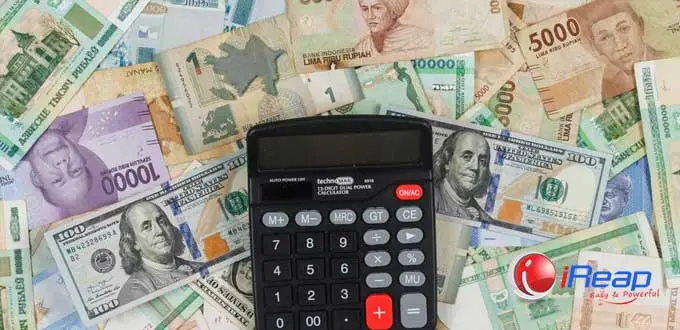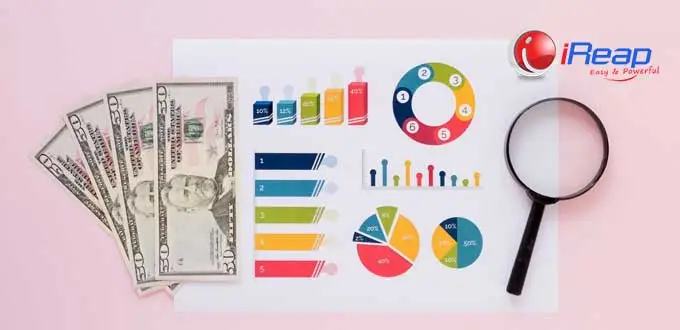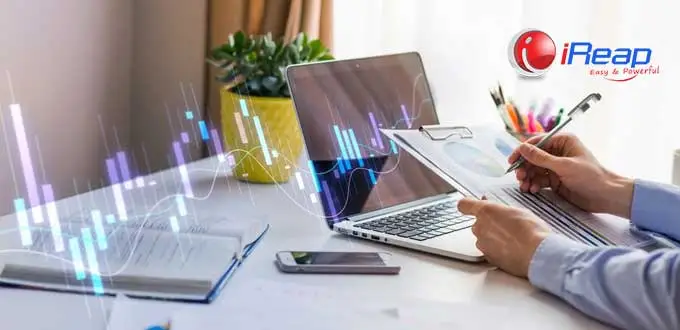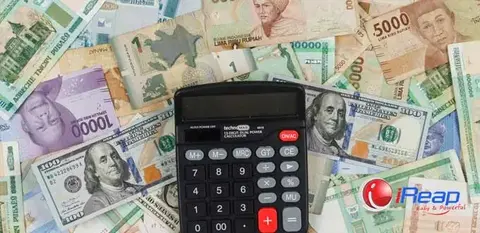
In the fiercely competitive world of retail business, a profound understanding of total costs is the cornerstone of financial success. Knowing how each cost component—operational expenses, inventory, and other contributing factors—impacts store performance can make a substantial difference in profitability.
This article explores strategic insights and best practices for managing total costs to enhance your retail store’s performance, with a special focus on how the iReap POS application drives operational efficiency.
Understanding Total Cost
Running a retail store requires business owners to fully comprehend the concept of total cost. It encompasses multiple aspects—operational costs, inventory purchases, and hidden expenses that are often overlooked.
To achieve financial success, a deep understanding of each cost component is essential. Here’s how iReap POS helps streamline operational expenses:
1. Real-Time Sales Monitoring
With iReap POS, you can monitor store sales in real-time, gaining instant insights into performance trends. This empowers you to identify emerging sales patterns and make timely, data-driven decisions.
2. Efficient Inventory Management
The application simplifies inventory management with precise tracking features. You can monitor stock levels, minimize the risk of stockouts, and optimize purchasing to reduce holding costs.
3. Optimized Employee Scheduling
Accurate sales data from iReap POS helps you create optimized staff schedules—reducing excessive labor costs while ensuring ideal coverage during peak hours.
4. Measurable Promotions and Discounts
Easily manage promotions and discounts while analyzing their financial impact. Data-driven insights help you design campaigns that deliver tangible results without undermining profit margins.
5. Comprehensive Financial Reporting
iReap POS provides detailed financial reports that allow you to assess your store’s fiscal health and pinpoint areas for greater efficiency.
Key Elements of Total Cost
Beyond operational efficiency, effective cost control in retail also depends on managing inventory purchasing expenses. Here’s how to handle it effectively:
1. Smart Supplier Selection
Choosing the right suppliers is the first step toward managing procurement costs. iReap POS helps you track suppliers offering the most competitive pricing, supporting data-driven sourcing decisions.
2. Streamlined Ordering Process
The integrated system simplifies order management, preventing costly overstocking or shortages due to ordering errors.
3. Product Sales and Popularity Analysis
Leverage iReap POS analytics to assess product performance comprehensively. Knowing which products sell best enables you to adjust purchasing strategies and improve inventory turnover.
4. Product Lifecycle Management
Understand product lifecycles to determine when to introduce new items or discontinue underperforming ones, avoiding unnecessary stock accumulation.
5. Net Profit Evaluation
iReap POS gives visibility into the net profit of each product. With clear insight into profit margins, you can make informed decisions that maximize profitability. Learn more about enhancing your gross margin with iReap POS.

Effective Cost Management Strategies
With a thorough grasp of operational and inventory-related costs, let’s explore practical strategies to manage your retail expenses efficiently.
1. Automate Administrative Processes
iReap POS goes beyond a cashier system—it automates administrative workflows from inventory tracking to sales reporting, saving time and cutting overhead costs.
2. Real-Time Monitoring
Through real-time insights, you can swiftly detect sales trends and take corrective actions, preventing losses and enhancing performance.
3. Customer Loyalty Programs
Implementing loyalty programs increases customer retention without inflating marketing costs. iReap POS integrates such programs to strengthen customer engagement.
4. Energy and Utility Optimization
By analyzing sales patterns, iReap POS helps optimize store operations and reduce electricity or utility expenses based on demand fluctuations.
5. Seamless Financial Integration
Integration with financial systems ensures precise transaction recording and faster financial reconciliation without additional effort.
Success Story
To illustrate the impact of total cost management and iReap POS implementation, here’s a real-world example from a thriving retail store.
Background:
“Maju Jaya Elektronik,” a local electronics retailer, faced rising operational expenses and intense competition. Its owner, Mr. Andi, adopted iReap POS to address these challenges.
Steps Taken:
- Effective Monitoring with iReap POS:
Using real-time sales tracking, Mr. Andi identified top-performing products and optimized inventory levels. - Improved Inventory Control:
The system helped prevent overstocking and provided valuable insights into product lifecycle management. - Targeted Promotions:
By analyzing sales data, the store launched precise promotions that boosted sales without eroding margins. - Operational Efficiency:
Automation reduced administrative tasks and streamlined staff scheduling, cutting labor costs. - Enhanced Customer Loyalty:
Through an integrated loyalty program, “Maju Jaya Elektronik” strengthened customer retention and long-term profitability.
Results:
With iReap POS, “Maju Jaya Elektronik” achieved higher profitability, lower operating costs, and greater customer satisfaction.

The Role of Technology in Total Cost Management
Let’s delve into how technology—particularly iReap POS—acts as a catalyst for total cost management in retail operations.
1. Automation of Routine Tasks
iReap POS automates a range of administrative tasks such as sales recording, inventory control, and financial reporting—reducing manual workload while ensuring data accuracy.
2. Efficient System Integration
Seamless integration between iReap POS and financial systems eliminates accounting discrepancies and enhances financial visibility.
3. Data-Driven Decision Making
The system provides accessible analytics to evaluate store performance and guide strategic decision-making based on solid data.
4. Transaction Security and Traceability
Modern technology ensures secure, traceable transactions—protecting against financial losses and maintaining your store’s reputation.
5. Continuous Updates and Support
iReap POS offers ongoing feature updates and technical support, keeping your retail operations aligned with the latest technology trends for optimal cost management.
Conclusion
In the pursuit of financial success, effective total cost management is indispensable. Leveraging smart strategies and advanced technology like iReap POS brings measurable advantages—streamlined operations, improved efficiency, and enhanced profitability.
With iReap POS, retailers can monitor real-time sales, manage inventory efficiently, and implement data-driven cost control strategies.
The success story of “Maju Jaya Elektronik” stands as a testament to how iReap POS integration can significantly elevate profitability.
As a leading solution for total cost management, iReap POS empowers retailers to achieve operational excellence and stay ahead in today’s competitive marketplace.



